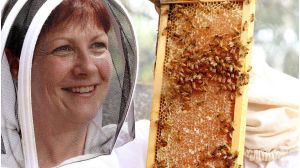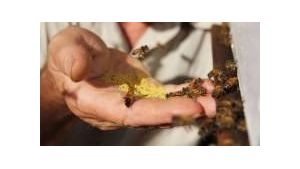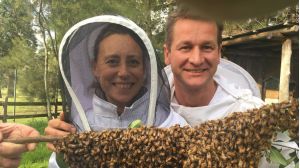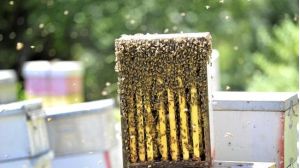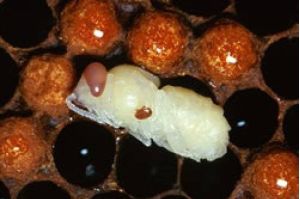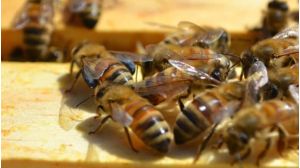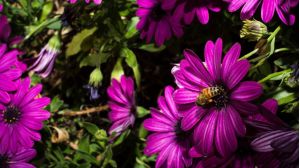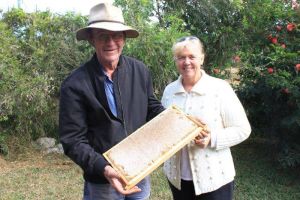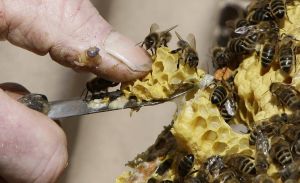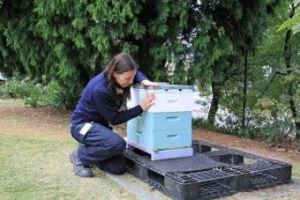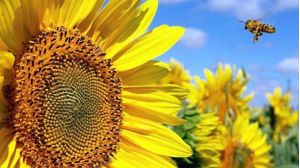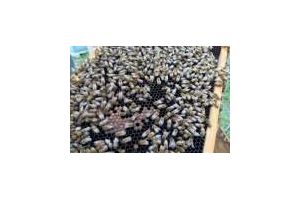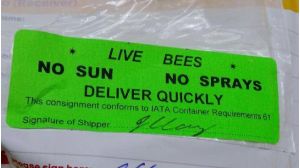Tel: 02 9731 7400 | Unit 1A, 1 Swaffham Road, Minto NSW 2566
Previous Articles
THE Gold Coast is abuzz with bee industry professionals as the third Australian Bee Conference kicks off.
This is the first time the congress has gathered in three decades, with previous conferences being held in 1972, and 1988
The potentially devastating varroa mite, which could wipe out the Australian beekeeping industry, has been detected in Victoria.
A bee colony infested with the varroa mite was detected on Wednesday at the Port of Melbourne on a ship from the United States.
ANA and Sven Martin have read enough about the threat to the world’s bee population to be concerned.
The couple decided to be proactive and do whatever they could to help protect the species and moved to a property at Johns River. They now run a business called Amber Drop Honey.
About 160,000 bees now call West End home, with the yellow buzzing insects housed on a building rooftop.
Bee One Third founder Jack Stone installed four beehives on the top of the Westpac Bank building on Boundary Street.
The ancient Romans kept geese as guard animals.
My wife's family kept bees.
Their old family home didn't have much of a fence, but it was protected from intruders by the hive in the backyard. My wife's aunt introduced
Sandra Ullrich is a beekeeper who approaches the ancient art of apiculture as a mindful pursuit. Honey bees work towards a common goal of sustaining their community while pollinating plants.
Small crop farmers Louise and George Wilson never imagined becoming beekeepers, but thanks to YouTube they've got all the skills they need.
Mr Wilson said he did not know anything about bees 12 months ago, but found videos on beekeeping so interesting that he spent hours and hours on YouTube learning all about it.
Key updates and insights from one of Australia’s most ambitious and wide-ranging pollination research projects will be shared at the 3rd Australian Bee Congress that begins on the Gold Coast today.
Researchers working on the AgriFutures Australia managed project Securing Pollination for More Productive Agriculture: Guidelines for effective pollinator management and stakeholder adoption –– will deliver their latest findings, all focused on future proofing pollination services to the 65 per cent of horticultural and agricultural industries reliant on the health of Australia’s honey bee and pollination sector.
Sentinels stand guard around Hobart's ports watching, waiting and collecting pollen.
No, they are not looking for White Walkers; they are keeping watch for bee pests and pest bees.
The sentinels are European honey bees, stationed in hives within 600 metres of ports as
Clarence Native Bees Group enjoyed an eventful and very successful month in March.
The Workshop at the Healing Centre in Victoria Street, Grafton on Saturday March 17 attracted great interest. Like each of the previous workshops held by the Bee Group it was fully booked and people turned away.
European farmers are facing a total ban on a common group of pesticides after a report confirms they harm bees, putting pressure on Australia to follow.
The report published by the European Food Safety Authority [EFSA] analysed more than 1,500 studies and found three neonicotinoid pesticides posed a high risk to all bees.
ALMOST 100 bees express-posted to Townsville died after Australia Post failed to follow directions for carrying and delivering agricultural items during this week’s heatwave.

